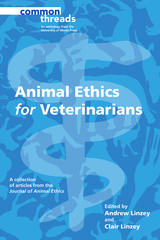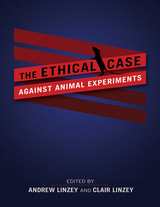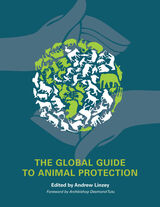

In Linzey’s view, animal rights is synonymous with animal theology. Linzey argues that historical theology, creatively defined, must reject humanocentricity. Questioning the assumption that if theology is to speak on this issue, “it must only do so on the side of the oppressors,” Linzey investigates not only the abstractions of theory, but also the realities of hunting, animal experimentation, and genetic engineering. His is a pioneering, vital, and unequivocally Christian voice advocating on behalf of the countless creatures who share our world and our lives but cannot speak for themselves.

studies on animals and theology ever published. Contributors from both
sides of the Atlantic tackle fundamental questions about theology and
how it is put into practice.
Do animals have immortal souls? Does Christ's reconciling work include
animals? Contributors address these issues and more in the context of
scriptural perspectives, the Christian tradition, historical disputes,
and obligations to animals.
As Andrew Linzey points out in his introduction, it cannot be right for
theological practitioners to carry on their business as though the world
of animals were invisible. Mainstream Christianity still propagates a
range of ideas about animals that are hugely detrimental to their status
and welfare. This important volume argues that it is time for a change.

The Ethical Case against Animal Experiments begins with the Oxford Centre for Animal Ethics's groundbreaking and comprehensive ethical critique of the practice of animal experiments. A second section offers original writings that engage with, and elaborate on, aspects of the Oxford Centre report. The essayists explore historical, philosophical, and personal perspectives that range from animal experiments in classical times to the place of necessity in animal research to one researcher's painful journey from researcher to opponent.
A devastating look at a contemporary moral crisis, The Ethical Case against Animal Experiments melds logic and compassion to mount a powerful challenge to human cruelty.

READERS
Browse our collection.
PUBLISHERS
See BiblioVault's publisher services.
STUDENT SERVICES
Files for college accessibility offices.
UChicago Accessibility Resources
home | accessibility | search | about | contact us
BiblioVault ® 2001 - 2024
The University of Chicago Press









